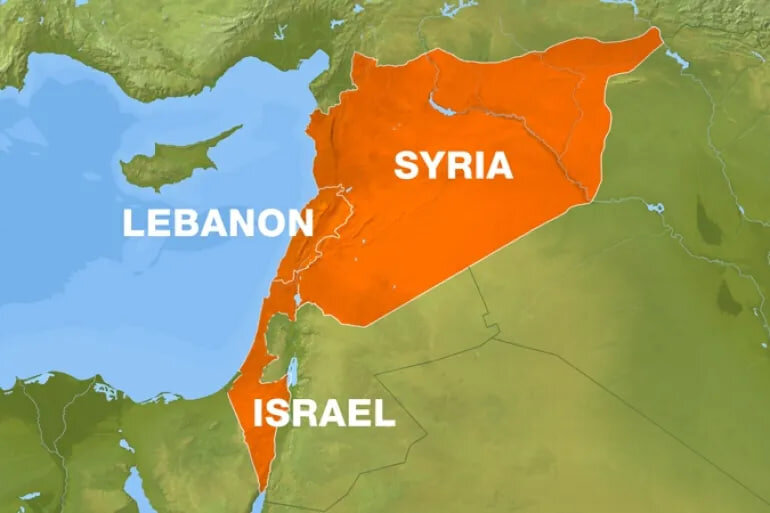Lessons Lebanon can learn from what is happening in Syria

BEIRUT — By intensifying its attacks on “New Syria”—under the pretext of protecting the Druze—the Israeli enemy is trying to make anyone who dares to challenge the HTS-led regime’s positions understand that they are forbidden from objecting to Israel’s known conspiracy to expand, destabilize, and subjugate West Asia’s peoples.
Given the intertwined geography, the repercussions of these events represent an existential threat to Lebanon.
Today, it is more certain that the claim that Lebanon could have avoided war had Hezbollah not opened a support front for Gaza is no longer realistic. Numerous reasons confirm that targeting the Resistance was only a matter of time.
Furthermore, confronting Hezbollah was a priority agreed upon by the political and military leaders of the temporary occupation entity.
Syria’s de facto regime has not only refrained from opening the Golan front, but from day one ensured that Hezbollah’s supply routes would be cut off; nevertheless, the Israeli enemy proceeded to destroy all of Syria’s capabilities, transforming it into a weak state that could easily be bargained with to achieve Israel’s well-known ambitions.
The occupation entity is formulating a Syria-like approach toward Lebanon as it sees the capabilities of the Lebanese resistance as an obstacle to its ambitions.
Now, and after his martyrdom, the vision of martyr Hezbollah Secretary General Sayyed Hassan Nasrallah is proven, for the thousandth time, correct when he warned that the fall of Syria would lead, at the very least, to the encirclement of the Resistance in Lebanon and Palestine.
Sayyed Nasrallah’s wisdom in identifying the threat of takfiri groups was also proven, especially after the massacres on the Syrian coast.
Behind Hezbollah, the primary obstacle to Israeli ambitions was Iran, which, since the victory of the Islamic Revolution under the leadership of Imam Khomeini, has changed the course of the conflict with the Israeli enemy.
Meanwhile, Loyalty to the Resistance parliamentary bloc called on the Lebanese government to adopt a clear and serious policy toward Israeli attacks, emphasizing the Lebanese people’s insistence on their “sovereign right to reject the occupation, condemn the regime’s aggressive approach, and adhere to their national constants, which require its defeat, both officially and popularly.”
An informed political source confirmed to Tehran Times that Lebanon’s anti-Resistance team is exerting pressure to obstruct the reconstruction of what was destroyed by the Sept.–Nov. American-led Israeli aggression, despite the Lebanese government’s financial capacity to reconstruct with an initial sum (no less than one and a half billion dollars).
The source noted that the Iraqi government may decide to transfer its savings in the Central Bank of Lebanon to an official Lebanese body responsible for the reconstruction of housing units, but the Lebanese government insists on ignoring this matter in order to achieve political gains.
It is worth noting that former Prime Minister Najib Mikati also justified his rejection of Iranian support with the flimsy pretext of sanctions imposed on Iran.
Despite Tehran’s proposal to transfer these donations through international institutions not subject to sanctions, such as the World Bank, the International Monetary Fund, or any other institution, Mikati refused.
Following the election of President Aoun and the formation of the current government by Nawaf Salam, both officials were not even considering opening any discussion with Iran due to their complete submission to the dictates of Washington and Riyadh.
It is worth noting that Hajj Hussein Khalil, the political aide to the Secretary-General of Hezbollah, had met with Salam to inform him that the loan recently approved by the World Bank for Lebanon ($250 million plus $75 million agreed upon during the Paris meeting) would be spent on infrastructure, not rebuilding destroyed homes!
Reportedly, Samir Geagea met Salam, away from the media, as the Lebanese Forces leader’s concerns grew over what he sees as President Aoun’s “monopolization” of the Christian arena.
Geagea is seeking to form a ministerial front to limit Aoun’s influence and achieve his core objectives ahead of the parliamentary elections next year, most notably ensuring the exclusive control of arms by the “legitimate” authority throughout Lebanon and obstructing the reconstruction of what was destroyed during the ongoing attacks against Lebanon.
Leave a Comment